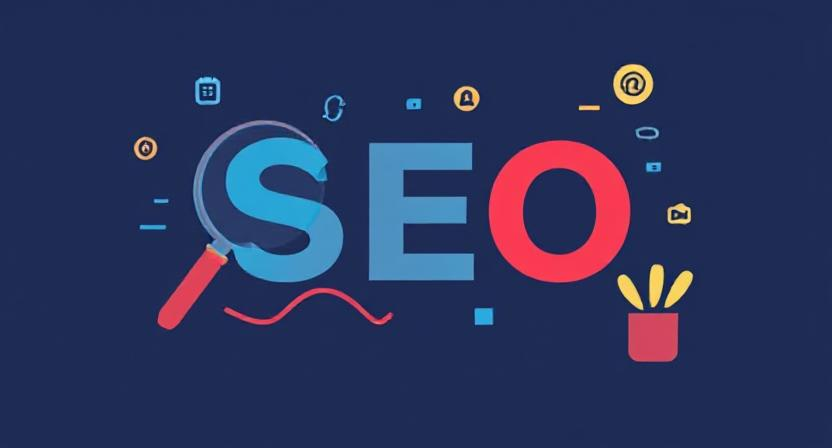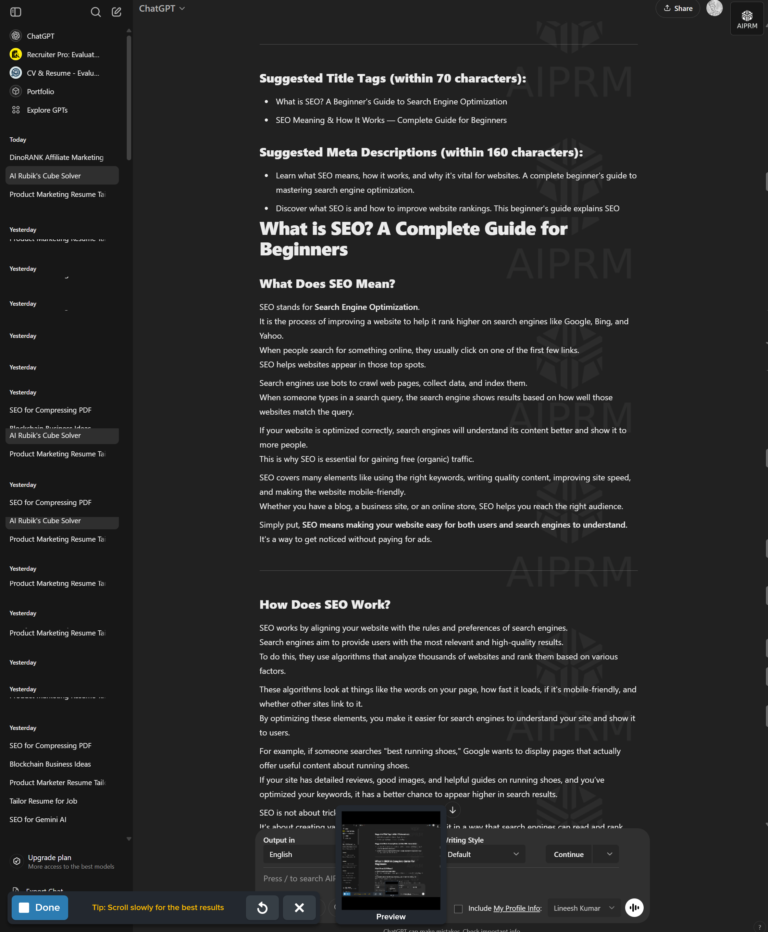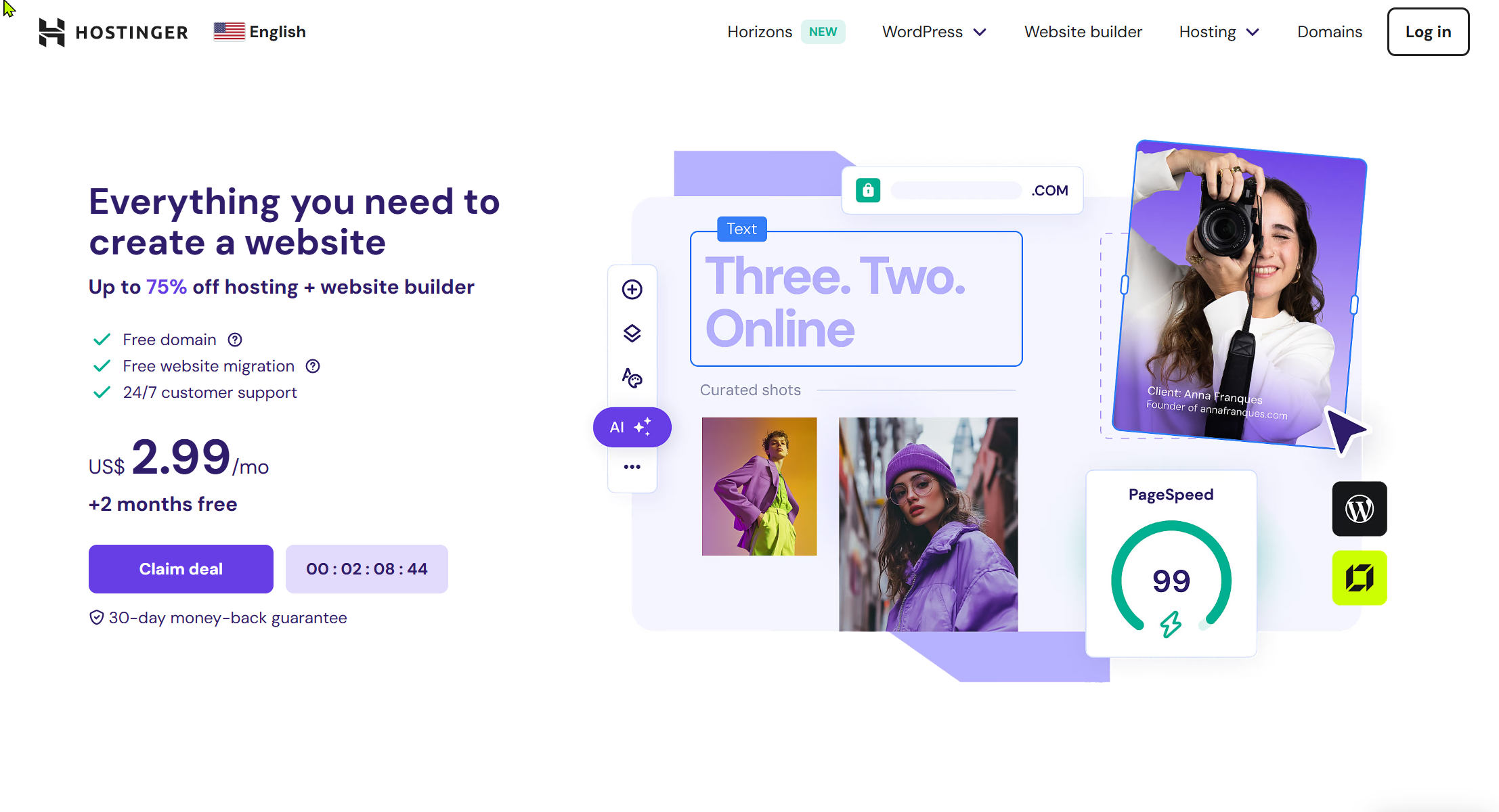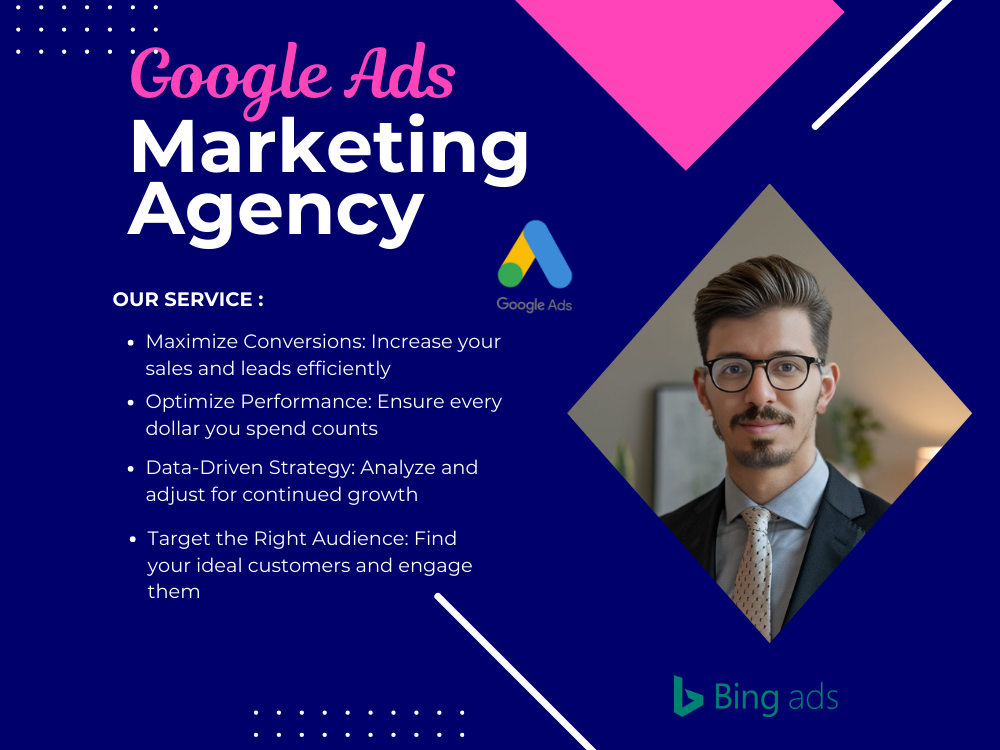
If you need a guide on how to do SEO on Google, I’ll give you a tip: constantly look for the most current information.
The Internet is evolving at breakneck speed. Every year, new technologies and trends emerge that can turn the way we use networks on its head.
And, along with the Internet, the strategies for positioning our websites have changed a lot in a very short time.
The SEO of a decade ago is not the same as it was two years ago. Nor the latter that we find ourselves in today.
The fundamentals of SEO remain the same. You just have to adapt to the current circumstances.
If there is one thing that has characterized 2023, it has been the emergence of ChatGPT and the consolidation of artificial intelligence (AI) as a technology that will play an increasingly important role in our lives.
There are those who see AI as a threat, but also those who see it as a great opportunity.
Within the SEO world, I know many success stories of people who, thanks to artificial intelligence, have managed to give a critical boost to their projects.
They have only known how to take advantage of this new reality.
In this article, I will tell you my vision for SEO for the year 2025 and how we can take advantage of the tools offered by AI to accelerate our processes and make certain manual tasks easier for us that previously took us many hours.
But, first of all, let’s go with a little reminder about the reasons why you should do SEO on your websites.

SEO (Search Engine Optimization) is a set of techniques to make our pages appear as high as possible in search engine results.
Think about one thing: when we want to learn about a topic on the Internet, what do we usually do?
Normally, we type something about that topic into Google and start browsing the results.
We click on one of the links. Then in another. Maybe in yet another one.
But, usually, we do it in order: from the first onwards. We don’t go until the tenth page and start from that point.
There are many statistics that confirm that most users do not go beyond the first page of Google and that almost no one goes beyond the third page.
Hence the importance of your website being in one of those first positions. The higher up, the better.
Think of search engine results as the biggest showcase for your business. A display for which, in addition, you do not have to pay (at least, not directly).
With this perspective, don’t you think it’s worth making room for SEO within your digital marketing strategy?
In 2023, AI has been a real revolution, which has had an almost immediate application in content creation.
In a short time, a large number of websites began to emerge with hundreds of articles generated directly with ChatGPT.
But Google’s algorithm is getting better and better, updated several times a year and able to distinguish when content is worth it and when it isn’t.
Therefore, predictably, many pages created solely with AI, without any revision or subsequent curation, fell precipitously.

There’s a phrase I’ve heard hundreds of times since I started in the world of SEO. I’m sure it sounds familiar to you too. It’s that catastrophic sentence that says “SEO is dead.”.
In 2023 we heard it again.
For those for whom SEO consists of filling their texts with repetitions of the same keyword, getting hundreds of links from websites of dubious reputation, or publishing articles automatically and without reviewing, effectively, that SEO is dead.
However, in my opinion, SEO is still more alive than ever.
They say that Google’s algorithm takes into account more than 90 variables when evaluating the quality of a website.
And SEO is precisely about analyzing these criteria, adapting to changes in the algorithm, and creating quality pages according to them.
We are at a time when AI can be a great ally to facilitate our work as SEOs.
But you have to know how to use it correctly, either by learning on your own or by going to specialized training that will help you integrate these new technologies into your SEO strategy.
Only then will we be able to take advantage of this opportunity to improve our processes and give Google the quality content it is demanding of us.
Knowing then that SEO is not dead, but that AI has forever changed the way we create content (if you want to remain competitive) and also how to do SEO, the obvious question is how to do it from now on.
The answer is not trivial.
That’s why I’ve dedicated an entire post to it that was published right here a few weeks ago and which you can access above.
Enjoy. 😊
Until a while ago, one way to quickly position a website was by creating links. The more, the merrier.
This practice, which consists of other websites ending up linking to yours from one of their pages, is known in the SEO world as link building.
Links on the Internet had a value similar to bibliographic references in the case of scientific articles.
If a lot of people link to your website, your content is supposed to be very relevant.
Therefore, the greater the number of links, the more authority a website had, and, therefore, the better its positioning in search engines would be.
And it worked. I think it worked.
But not now.
Google has evolved a lot and knows that links mean almost nothing anymore. Or, at least, he does not value them in the same way as before.
The truth is that external links are still important in SEO. But only if the link building is of quality.
A link from a lost directory on the web is of little or no value. Or from a free blog that you could have created yourself.
What Google wants are natural links on websites with similar themes to yours that also have a certain prestige.
Thanks to this type of link, we contribute to reinforcing a concept that has emerged recently but is becoming more and more important when it comes to positioning a website. I am referring to the Topical Authority.
This concept won’t really be new in 2025, but it has been gaining traction over the last year.
Topical authority refers to the idea that our website is seen by Google as a reliable and expert source on a specific subject .
To do this, there are two fundamental aspects:
That our content responds to as many concepts as possible related to a specific topic.
Let us be linked by other pages that are also relevant to the same topic.
This idea is linked to another broader factor, which is also decisive today: the EEA .
The acronym EEAT comes from:
Experience.
Knowledge (Expertise).
Authority.
And trustworthiness.
Through them, Google wants to give more and more importance to quality websites whose authors have a reputation in the sector they are talking about.
This is why links alone are increasingly less important in positioning and Internet prestige is becoming more important.
So when you’re going to request an external link, ask yourself:
Do I really want to be linked to that medium?
Is it a place that contributes to improving the reputation and popularity of my website?
Does it reinforce my topical authority because these are relevant pages in my sector?
If the answer is no, you better look for other options.

Although Google continues to make a large number of changes to its algorithm, this does not mean that SEO is constantly and completely changing.
There are many things that are still important and have been done in a similar way for several years.
Let’s look at the most important ones.
On-Page SEO is the term we use to refer to the set of actions we can carry out within our own website to improve its positioning.
This is where the difference is made with the so-called off-page SEO, which refers to the techniques that are applied outside of your website. The latter is the case of external links, which we have discussed before, or dissemination on social networks, for example.
Within on-page SEO, there are many factors to take into account, such as the page loading speed, its correct display on mobile devices, internal linking, or the care of images.
But if I had to highlight one specific action, it would undoubtedly be keyword research.
Keyword research involves finding out what specific terms a user enters into the Google search box when they want to find out about a topic relevant to our project.
In my opinion, it remains one of the most important phases of SEO. I would even say the most important.
At the end of the day, if you don’t know what people are interested in, you’re not going to be able to create content that anyone will want to read.
And if you don’t create content that people search for on the Internet, people will hardly ever reach your website.
The tool I want to recommend to you to carry out a professional keyword research is DinoRANK.
The process I follow is simple, but it requires patience and method.
I always start with a list of simple content ideas that may be relevant to my website. These are what I call seed keywords.
I pass each of these seed keywords through DinoRANK to obtain different lists that I can then analyze.
Don’t pay more for the same features! With DinoRANK, you get maximum value for your investment and everything you need to rank higher on Google.
👉 Ready to grow your traffic? Check out DinoRANK here and start optimizing like a pro!
💥 Special offer: Sign up today and experience the power of DinoRANK for yourself!
It is an iterative work, which we can extend as long as we want.
That is, each keyword that we obtain through DinoRANK, we can pass it back through the tool to extract other related concepts.
In this way, little by little, I set up a sufficiently large list of words that I could analyze to decide the content that I should publish on my website.
Now, although knowing the relevant keywords of our business is necessary to know what we can talk about on our website, we still have to go a step further.
There is no point in creating content around a keyword if it does not respond to what the user is looking for.
The key message here is that search intent is critical if we want our pages to rank correctly.
And how can we know this search intent?
Very simple: just ask Google.
Imagine that you want to create content about gazpacho. In that case:
If you search for “Best SEO Tool” on Google, you’ll see that the results shown are mainly recipes to make this dish at home.
If, on the other hand, you analyze the keyword “Best SEO Tool,” you will discover that what the search engine returns are lists with the most valued gazpacho brands.
And if you look at the keyword “buy seo tool,” you will notice that web stores where the product is sold appear directly.
Therefore, on the one hand, you must find out what search intent is behind certain keywords and, on the other hand, decide which of them you want to answer and create the right content based on the objectives of your website.
And don’t forget these two concepts:
Multiple keywords can respond to the same search intent. For example, “gazpacho,” “how to make gazpacho,” or “gazpacho recipe” would be answered with basically the same article.
Each URL on our website should respond to a single search intent. In this way we make it clear to Google the objective of our content, and we do not drive the user crazy with information that does not interest him.

We’ve talked about the importance of keyword research to learn about topics that may interest your audience.
Now, be clear about one thing. If your content is bad and users don’t like it, they won’t rank.
Or maybe they will, for a while, but sooner rather than later they will be replaced by other pages that better satisfy the search intent.
I think that’s the main reason why many articles created with AI end up losing positions in the SERPs.
We’ve already seen how you can learn about search intent from a more personal or intuitive perspective.
But you can also get to know it in a more technical way.
In DinoRANK there is a utility that I consider basic when writing my articles. This is the TF*IDF analysis.
The idea is quite simple, although the algorithmic logic behind it is not so simple.
If we evaluate the first Google results for a specific keyword and extract the terms that are most repeated in that content, we will be able to create articles with a semantic breadth that responds to what the user wants to find.
Obviously, then there’s the copywriter’s magic touch to introduce terms naturally and create quality content.
I’m not going to go into detail on how to use DinoRANK’s TF*IDF module to write or curate your content, as it would make for a post as long or longer than this one.
What I will tell you is that, if you use this type of analysis tool when creating and improving your texts, it is more than likely that you will notice positive effects on their positioning.

A few years ago, Google began to take into account the user experience: the speed of the website, its navigability, accessibility, etc.
This is something that has only been consolidated. Therefore, remember to take care of these aspects of your website:
Page loading speed: it is an important factor for the user experience, and Google has made it very clear that it is a ranking factor.
Usability: An easy-to-use website is more likely to be explored and found useful by users. And a clear and logical structure also makes it easier for Google to value it better.
Errors, broken links, crashes, etc., generate a bad user experience and are indications of a low-quality site for Google, so watch out for this. First, use good hosting for your website and tools such as Google Search Console itself, with which you can easily carry out checks.
When someone tells me that SEO is dead, it gives me one more reason to believe otherwise, which is becoming more and more important.
SEO helps us to make websites that search engines like.
And search engines strive to give the user what they want.
Therefore, SEO gives us the guidelines for the Internet to be a place with quality content that people want to consume.
How is such a practice going to die?
What happens is that the Internet and search engines evolve very quickly, so SEO strategies are increasingly specialized.
Those of us who are dedicated to SEO cannot stand still. We have to recycle ourselves continuously, as well as bet on quality training that is up to date with the times.
AI is bringing about a great revolution in the way we relate to the information available on the Internet.
If we properly use the tools it makes available to us, we can speed up a good part of the processes we carry out as SEOs and save significant costs.
We cannot be left behind. We must understand AI, adapt to it, and integrate it into our daily work.
Otherwise, SEO will live on, but our careers as SEOs could have their days numbered.




We’re here to help you strategize, grow, and achieve unparalleled success for your business. Let’s make it happen together!

Accelerating growth with creative digital marketing strategies designed to enhance brand visibility, boost engagement, and drive sustained conversions for long-term success.
© Copyright 2025 Lineesh – All Rights Reserved.
Hi my loved one I wish to say that this post is amazing nice written and include approximately all vital infos Id like to peer more posts like this
Thanks!